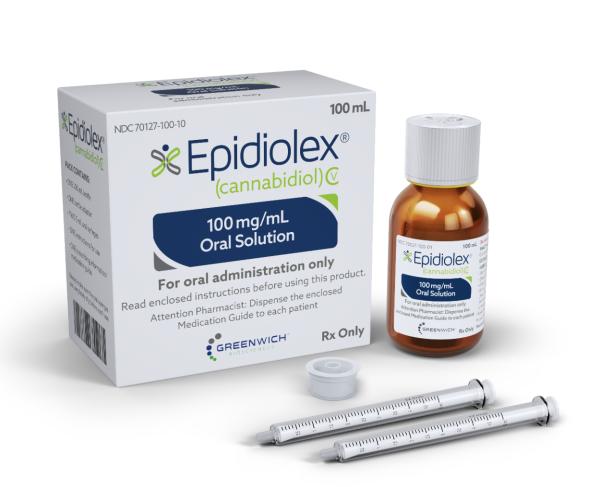Epidiolex Disease Interactions
There are 2 disease interactions with Epidiolex (cannabidiol).
Antiepileptics (applies to Epidiolex) suicidal tendency
Moderate Potential Hazard, Moderate plausibility. Applicable conditions: Depression, Psychosis
Antiepileptic drugs (AEDs) have been associated with an increased risk of suicidal thoughts or behavior in patients taking these drugs for any indication. Pooled analyses of 199 placebo-controlled clinical studies involving the use of 11 different AEDs showed that patients receiving AEDs had approximately twice the risk of suicidal thinking or behavior compared to patients receiving placebo. AEDs should be administered cautiously in patients with depression or other psychiatric disorders; phentermine-topiramate should be avoided in patients with history of suicidal attempts or active suicidal ideation. The risk of suicidal thoughts and behavior should be carefully assessed against the risk of untreated illness, bearing in mind that epilepsy and many other conditions for which AEDs are prescribed are themselves associated with morbidity and mortality and an increased risk of suicidal thoughts and behavior. Patients, caregivers, and families should be alert to the emergence or worsening of signs and symptoms of depression, any unusual changes in mood or behavior, or the emergence of suicidal thoughts or behavior. If patients have symptoms of suicidal ideation or behavior, a dosage reduction or treatment discontinuation should be considered.
Cannabidiol (applies to Epidiolex) hepatic impairment
Moderate Potential Hazard, Moderate plausibility. Applicable conditions: Liver Disease
Because of the risk of hepatocellular injury, serum transaminases (ALT and AST) and total bilirubin levels should be measured in all patients prior to starting treatment with cannabidiol. Cannabidiol causes dose-related elevations of liver transaminases, and in controlled studies 13% of patients receiving treatment had elevations above 3 times the ULN. Caution and monitoring is advised in patients with hepatic impairment, which can be at increased risk. Dose adjustment is recommended in patients with moderate (Child-Pugh B) hepatic impairment or severe (Child-Pugh C) hepatic impairment. It may be necessary to have slower dose titration in patients with moderate or severe hepatic impairment than in patients without hepatic impairment. If a patient develops clinical signs or symptoms suggestive of hepatic dysfunction (e.g., unexplained nausea, vomiting, right upper quadrant abdominal pain, fatigue, anorexia, or jaundice and/or dark urine), promptly measure serum transaminases and total bilirubin and interrupt or discontinue treatment with cannabidiol, as appropriate.
Switch to professional interaction data
Epidiolex drug interactions
There are 625 drug interactions with Epidiolex (cannabidiol).
Epidiolex alcohol/food interactions
There are 2 alcohol/food interactions with Epidiolex (cannabidiol).
More about Epidiolex (cannabidiol)
- Epidiolex consumer information
- Check interactions
- Compare alternatives
- Pricing & coupons
- Reviews (4)
- Drug images
- Latest FDA alerts (2)
- Side effects
- Dosage information
- During pregnancy
- FDA approval history
- Drug class: miscellaneous anticonvulsants
- Breastfeeding
- En español
Related treatment guides
Drug Interaction Classification
| Highly clinically significant. Avoid combinations; the risk of the interaction outweighs the benefit. | |
| Moderately clinically significant. Usually avoid combinations; use it only under special circumstances. | |
| Minimally clinically significant. Minimize risk; assess risk and consider an alternative drug, take steps to circumvent the interaction risk and/or institute a monitoring plan. | |
| No interaction information available. |
See also:
Further information
Always consult your healthcare provider to ensure the information displayed on this page applies to your personal circumstances.


